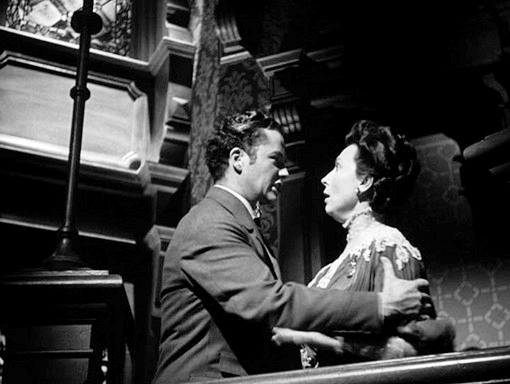
 Orson Welles’ 1942 film portraying the decline of an aristocratic American family was marred by studio interference, but is still one of the great masterpieces of cinema.
Orson Welles’ 1942 film portraying the decline of an aristocratic American family was marred by studio interference, but is still one of the great masterpieces of cinema.
The Magnificent Ambersons, the first film Orson Welles made after Citizen Kane, has suffered from its reputation as something of a “lost” film. It is true that RKO cut 44 minutes from the picture, rearranged some scenes, and attached an incongruous ending that was not shot by Welles. And yet, if I could watch this film without knowing anything of its history, it would still seem like an almost perfect work of art.
The story, an adaptation of a Pulitzer-prize winning novel by Booth Tarkington, tells of the young George Amberson Minafer (played by Tim Holt), the spoiled, arrogant son of a prominent turn-of-the-century Midwestern family. His way of life and his attitude—which today we might call “entitlement”—is at odds with the modern trends represented by Eugene Morgan (played by Joseph Cotten), an automobile inventor and entrepreneur who had wanted to marry George’s mother Isabel (Dolores Costello) years before. George ends up courting Eugene’s daughter (Anne Baxter) after his own fashion, but when, after the death of George’s father, it appears that Eugene is wooing Isabel again, George is furiously determined to prevent the match.
The story is simpler than it sounds in summary. Welles infuses it with nostalgia, melancholy, and darkness. George’s dislike of Eugene is cleverly paralleled by the theme of the coming automobile revolution. The decline of the Amberson fortunes is, however, a somewhat muted element of the story, although there is one chilling scene, done in close-up, where the grandfather’s incoherent, vaguely mystical talk presages his death. More prominent is the Oedipal intensity of George’s battle against his mother’s suitor (Welles doesn’t soften the character, and Holt is scarily convincing in the role), and the almost incestuous complicity of George with his spinster aunt Fanny, played by Agnes Moorehead, in a raw, incredibly vulnerable performance that was nominated for an Oscar and should have won.
The real star of the film, though, is its moody, expressionistic style, as in the scene where the townsfolk gossip about the Ambersons, and you see their faces set eerily against the empty background of the sky, or in the complex scenes between Holt and Moorehead on the mansion’s huge, winding central staircase, a vertical labyrinth that serves as the film’s central visual motif. The film uses lots of long, continuous shots, combined with a smoothly flowing camera, in which characters come in and out of the frame, say things, and then move away for other characters and dialogue. With its darkly toned Bernard Herrmann score, opulent deep-focus photography, and dreamlike sense of shadow and space, The Magnificent Ambersons is an incredibly innovative work, and also a very sad and touching elegy to a lost time. Yes, it’s a shame that the film we have is a cut version. But it’s a masterpiece all the same.
The Magnificent Ambersons is available on DVD.

